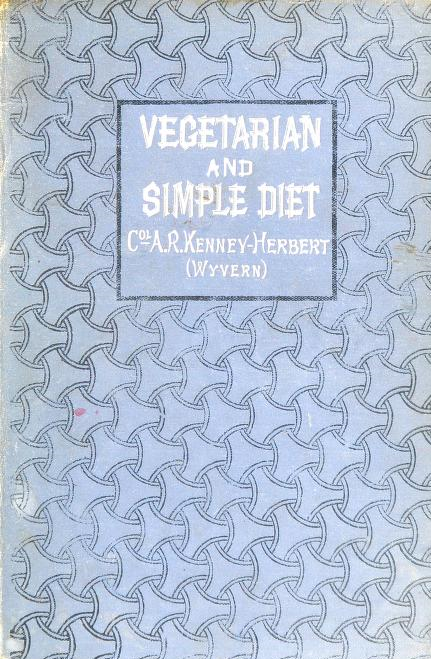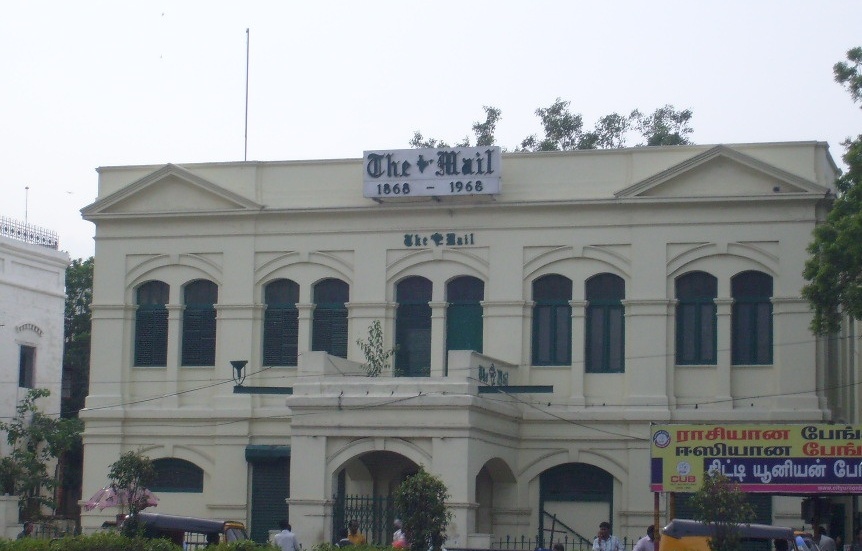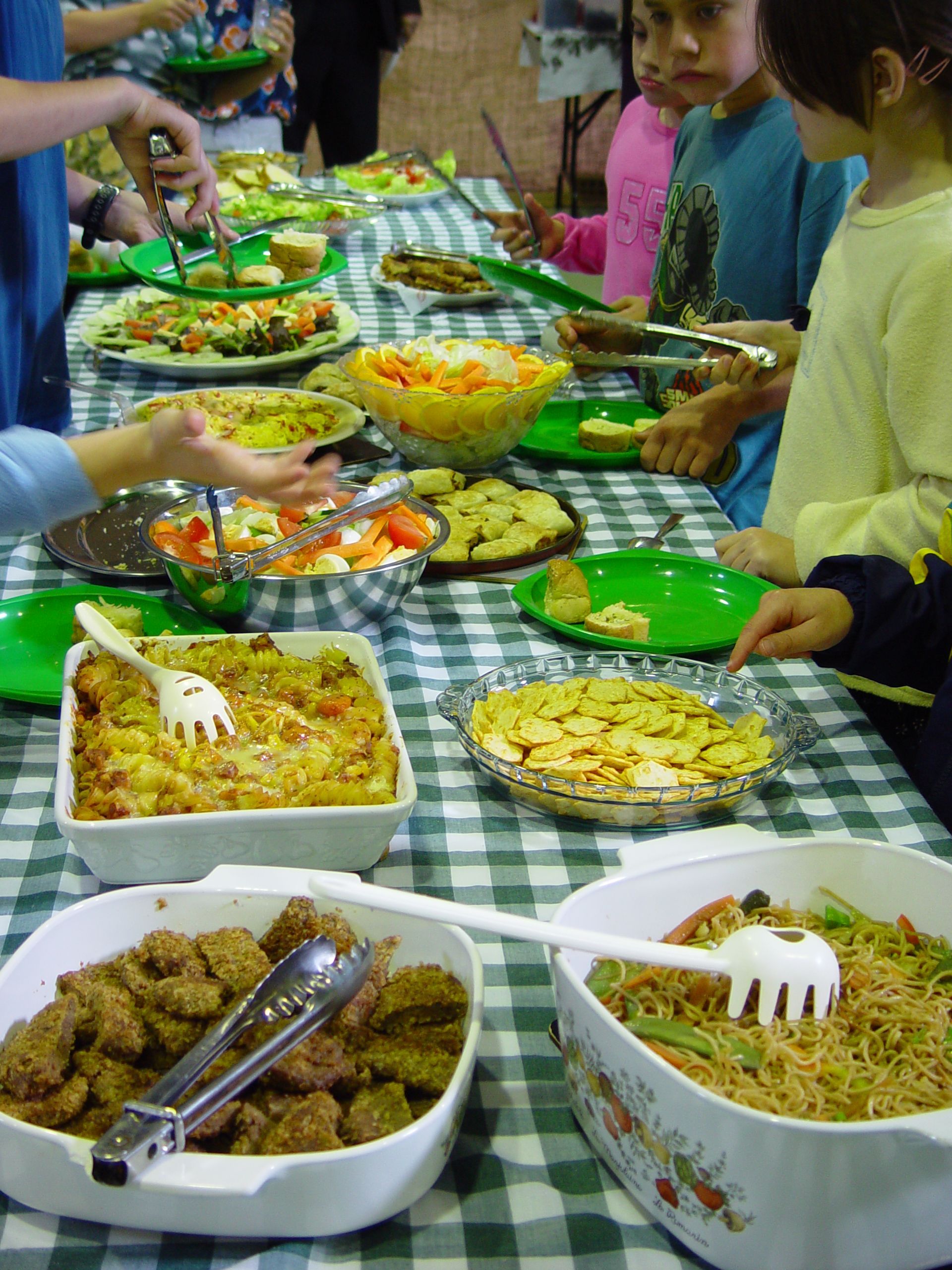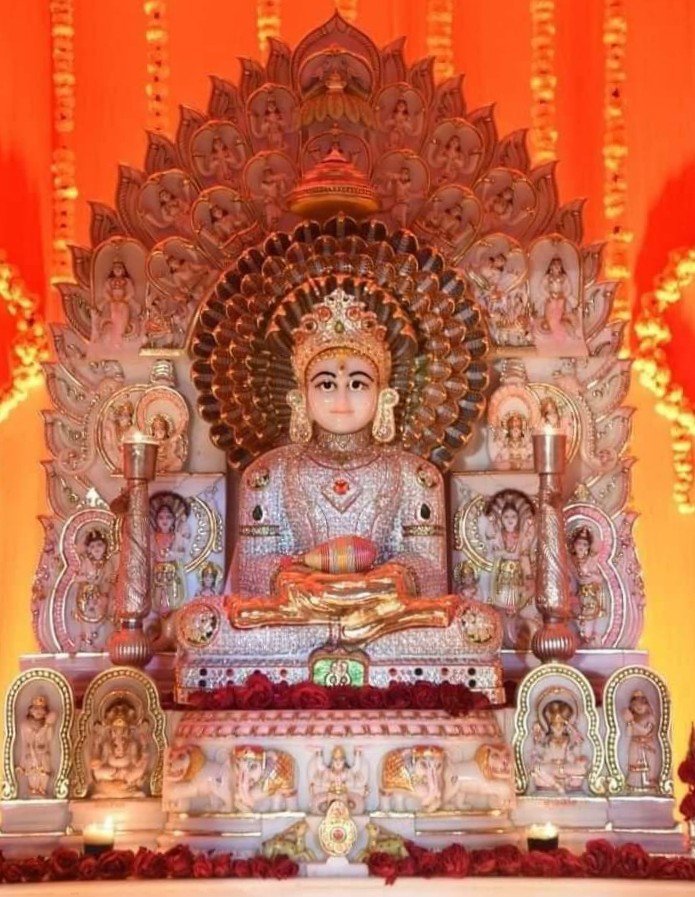|
Arthur Robert Kenney-Herbert
Brigadier-General Arthur Robert Kenney-Herbert (1840–1916) was a British soldier who served in the British Indian Army, and wrote on cooking. Life He was the son of the Rev. Arthur Robert Kenney (1805–1884), son of Arthur Henry Kenney and rector of Bourton-on-Dunsmore, and his wife Mary Louise Palmer. Rev. Arthur Robert Kenney changed his name in later life to Arthur Robert Kenney-Herbert, his mother, Mary Lusinda, being daughter of Robert Herbert, of that family of Castle Island, a branch of that of Muckross, County Kerry, where the Herbert family, originally from Wales, had been settled since the 1600s. Of this family were the Anglo-Irish politician Henry Arthur Herbert, whose namesake grandson was also a politician, and the Royal Navy officer Thomas Herbert. Kenney-Herbert entered Rugby School in 1855 as Arthur Robert Kenney. He served in the Indian Army from age 19. A cornet in 1859, he served in the Madras Cavalry, having arrived in India on 31 October of that year. ... [...More Info...] [...Related Items...] OR: [Wikipedia] [Google] [Baidu] |
Vegetarian And Simple Diet
Vegetarianism is the practice of abstaining from the consumption of meat (red meat, poultry, seafood, insects, and the flesh of any other animal). It may also include abstaining from eating all by-products of animal slaughter. Vegetarianism may be adopted for various reasons. Many people object to eating meat out of respect for sentient animal life. Such ethical motivations have been codified under various religious beliefs as well as animal rights advocacy. Other motivations for vegetarianism are health-related, political, environmental, cultural, aesthetic, economic, taste-related, or relate to other personal preferences. There are many variations of the vegetarian diet: an ovo-lacto vegetarian diet includes both eggs and dairy products, an ovo-vegetarian diet includes eggs but not dairy products, and a lacto-vegetarian diet includes dairy products but not eggs. As the strictest of vegetarian diets, a vegan diet excludes all animal products, and can be accompanied by absten ... [...More Info...] [...Related Items...] OR: [Wikipedia] [Google] [Baidu] |
The Madras Mail
''The Mail'', known as ''The Madras Mail'' till 1928, was an English-language daily evening newspaper published in the Madras Presidency (later Madras State, and then, Tamil Nadu) from 1868 to 1981. It was the first evening newspaper in India which is now operating as a news and media website. History The ''Madras Mail'' was started by two journalists, Charles Lawson and Henry Cornish on 14 December 1868. Lawson and Cornish had earlier served as editors in '' The Madras Times'' before resigning from editorship after a tiff-off with Gantz & Sons which owned the newspaper. Soon, the ''Madras Mail'' emerged as a formidable rival to both ''The Madras Times'' as well as ''The Hindu''. In 1921, the newspaper was purchased by European businessman John Oakshott Robinson who added it to his business conglomerate. In 1945, the newspaper was purchased by Indian business magnate S. Anantharamakrishnan Sivasailam Anantharamakrishnan (1905 – 18 April 1964), affectionately called ... [...More Info...] [...Related Items...] OR: [Wikipedia] [Google] [Baidu] |
1916 Deaths
Events Below, the events of the First World War have the "WWI" prefix. January * January 1 – The British Empire, British Royal Army Medical Corps carries out the first successful blood transfusion, using blood that had been stored and cooled. * January 9 – WWI: Gallipoli Campaign: The last British troops are evacuated from Gallipoli, as the Ottoman Empire prevails over a joint British and French operation to capture Constantinople. * January 10 – WWI: Erzurum Offensive: Russia defeats the Ottoman Empire. * January 12 – The Gilbert and Ellice Islands Colony, part of the British Empire, is established in present-day Tuvalu and Kiribati. * January 13 – WWI: Battle of Wadi (1916), Battle of Wadi: Ottoman Empire forces defeat the British, during the Mesopotamian campaign in modern-day Iraq. * January 29 – WWI: Paris is bombed by German Empire, German zeppelins. * January 31 – WWI: An attack is planned on Verdun, France. February * ... [...More Info...] [...Related Items...] OR: [Wikipedia] [Google] [Baidu] |
1840 Births
__NOTOC__ Year 184 ( CLXXXIV) was a leap year starting on Wednesday (link will display the full calendar) of the Julian calendar. At the time, it was known as the Year of the Consulship of Eggius and Aelianus (or, less frequently, year 937 ''Ab urbe condita''). The denomination 184 for this year has been used since the early medieval period, when the Anno Domini calendar era became the prevalent method in Europe for naming years. Events By place China * The Yellow Turban Rebellion and Liang Province Rebellion break out in China. * The Disasters of the Partisan Prohibitions ends. * Zhang Jue leads the peasant revolt against Emperor Ling of Han of the Eastern Han Dynasty. Heading for the capital of Luoyang, his massive and undisciplined army (360,000 men), burns and destroys government offices and outposts. * June – Ling of Han places his brother-in-law, He Jin, in command of the imperial army and sends them to attack the Yellow Turban rebels. * Winter – ... [...More Info...] [...Related Items...] OR: [Wikipedia] [Google] [Baidu] |
Northants Regiment
The Northamptonshire Yeomanry was a Yeomanry regiment of the British Army, formed in 1794 as volunteer cavalry. It served in the Second Boer War, the First World War and the Second World War before being reduced to squadron level in 1956. It ceased to have a separate existence in 1971. History Formation and early history In 1793, the prime minister, William Pitt the Younger, proposed that the English Counties form a force of Volunteer Yeoman Cavalry that could be called on by the king to defend the country against invasion or by the Lord Lieutenant to subdue any civil disorder within the country. The regiment was originally formed as the Northamptonshire Yeomanry Cavalry in 1794 but it was disbanded in 1828. It was raised again as independent troops in 1830 but disbanded again in 1873. Second Boer War A Northamptonshire Imperial Yeomanry regiment was formed during the Second Boer War. The regiment was based at Clare Street in Northampton at this time. First World War In accor ... [...More Info...] [...Related Items...] OR: [Wikipedia] [Google] [Baidu] |
Boiled Egg
Boiled eggs are eggs, typically from a chicken, cooked with their shells unbroken, usually by immersion in boiling water. Hard-boiled eggs are cooked so that the egg white and egg yolk both solidify, while soft-boiled eggs may leave the yolk, and sometimes the white, at least partially liquid and raw. Boiled eggs are a popular breakfast food around the world. Besides a boiling water immersion, there are a few different methods to make boiled eggs. Eggs can also be cooked below the boiling temperature, i.e. coddling, or they can be steamed. The egg timer was named for commonly being used to time the boiling of eggs. Variations There are variations both in degree of cooking and in the method of how eggs are boiled, and a variety of kitchen gadgets for eggs exist. These variations include: ;Piercing: Some pierce the shell beforehand with an egg piercer to prevent cracking. Ekelund ''et al.'' in ''Why eggs should not be pierced'' claimed that pricking caused egg white protei ... [...More Info...] [...Related Items...] OR: [Wikipedia] [Google] [Baidu] |
Rice
Rice is the seed of the grass species '' Oryza sativa'' (Asian rice) or less commonly '' Oryza glaberrima'' (African rice). The name wild rice is usually used for species of the genera '' Zizania'' and ''Porteresia'', both wild and domesticated, although the term may also be used for primitive or uncultivated varieties of '' Oryza''. As a cereal grain, domesticated rice is the most widely consumed staple food for over half of the world's human population,Abstract, "Rice feeds more than half the world's population." especially in Asia and Africa. It is the agricultural commodity with the third-highest worldwide production, after sugarcane and maize. Since sizable portions of sugarcane and maize crops are used for purposes other than human consumption, rice is the most important food crop with regard to human nutrition and caloric intake, providing more than one-fifth of the calories consumed worldwide by humans. There are many varieties of rice and culinary preferences t ... [...More Info...] [...Related Items...] OR: [Wikipedia] [Google] [Baidu] |
Kedgeree
Kedgeree (or occasionally ) is a dish consisting of cooked, flaked fish (traditionally smoked haddock), boiled rice, parsley, hard-boiled eggs, curry powder, butter or cream, and occasionally sultanas. The dish can be eaten hot or cold. Other fish can be used instead of haddock such as tuna or salmon, though these are not traditional. In India, khichari is any of a large variety of legume-and-rice dishes. These dishes are made with a spice mixture designed for each recipe and either dry-toasted or fried in oil before inclusion. This dish was heavily adapted by the British, developing a dish almost unrecognisable from the original khichari. History Kedgeree is thought to have originated with the Indian rice-and-bean or rice-and-lentil dish khichuṛī, traced back to 1340 or earlier.''Lobscouse and Spotted Dog; Which It's a Gastronomic Companion to the Aubrey/Maturin Novels'', Anne Chotzinoff Grossman and Lisa Grossman Thomas, Norton, 1997, p. 12. ''Hobson-Jobson'' cites i ... [...More Info...] [...Related Items...] OR: [Wikipedia] [Google] [Baidu] |
The Lancet
''The Lancet'' is a weekly peer-reviewed general medical journal and one of the oldest of its kind. It is also the world's highest-impact academic journal. It was founded in England in 1823. The journal publishes original research articles, review articles ("seminars" and "reviews"), editorials, book reviews, correspondence, as well as news features and case reports. ''The Lancet'' has been owned by Elsevier since 1991, and its editor-in-chief since 1995 has been Richard Horton. The journal has editorial offices in London, New York City, and Beijing. History ''The Lancet'' was founded in 1823 by Thomas Wakley, an English surgeon who named it after the surgical instrument called a lancet (scalpel). Members of the Wakley family retained editorship of the journal until 1908. In 1921, ''The Lancet'' was acquired by Hodder & Stoughton. Elsevier acquired ''The Lancet'' from Hodder & Stoughton in 1991. Impact According to the ''Journal Citation Reports'', the journal has a 2 ... [...More Info...] [...Related Items...] OR: [Wikipedia] [Google] [Baidu] |
Ovo-lacto Vegetarian
Lacto-ovo vegetarianism or ovo-lacto vegetarianism is a type of vegetarianism which forbids animal flesh but allows the consumption of animal products such as dairy and eggs. Unlike pescetarianism, it does not include fish or other seafood. A typical ovo-lacto vegetarian diet may include fruits, vegetables, grains, legumes, meat substitutes, nuts, seeds, soy, cheese, milk, yogurt and eggs. In India, such vegetarians are known as Eggetarian which is a portmanteau of egg and vegetarian (vegetarianism usually refers to lacto-vegetarianism in India). Etymology The terminology stems from the Latin '' lac'' meaning "milk" (as in 'lactation'), ''ovum'' meaning "egg", and the English term ''vegetarian'', so as giving the definition of a vegetarian diet containing milk and eggs. Diet In the Western world, ovo-lacto vegetarians are the most common and most traditional type of vegetarian. Generally speaking, when one uses the term ''vegetarian'', an ovo-lacto vegetarian is assu ... [...More Info...] [...Related Items...] OR: [Wikipedia] [Google] [Baidu] |
Vegetarianism
Vegetarianism is the practice of abstaining from the consumption of meat ( red meat, poultry, seafood, insects, and the flesh of any other animal). It may also include abstaining from eating all by-products of animal slaughter. Vegetarianism may be adopted for various reasons. Many people object to eating meat out of respect for sentient animal life. Such ethical motivations have been codified under various religious beliefs as well as animal rights advocacy. Other motivations for vegetarianism are health-related, political, environmental, cultural, aesthetic, economic, taste-related, or relate to other personal preferences. There are many variations of the vegetarian diet: an ovo-lacto vegetarian diet includes both eggs and dairy products, an ovo-vegetarian diet includes eggs but not dairy products, and a lacto-vegetarian diet includes dairy products but not eggs. As the strictest of vegetarian diets, a vegan diet excludes all animal products, and can be acc ... [...More Info...] [...Related Items...] OR: [Wikipedia] [Google] [Baidu] |
Sloane Street
Sloane Street is a major London street in the Royal Borough of Kensington and Chelsea which runs north to south, from Knightsbridge to Sloane Square, crossing Pont Street about halfway along. History Sloane Street takes its name from Sir Hans Sloane, who purchased the surrounding area in 1712. Many of the properties in the street still belong to his descendants, the Earls Cadogan, via their company Cadogan Estates. Sloane Street has long been a fashionable shopping street, especially the northern section closest to Knightsbridge, which is known informally as Upper Sloane Street. Since the 1990s Sloane Street's status has increased further, and it is now on a par with Bond Street, which has been London's most exclusive shopping street for two centuries. The street has flagship stores for many of the world's most famous brands in fashion. In popular culture Sloane Street, along with Sloane Square, also gives its name to " Sloane Rangers", originally applied to the ... [...More Info...] [...Related Items...] OR: [Wikipedia] [Google] [Baidu] |







